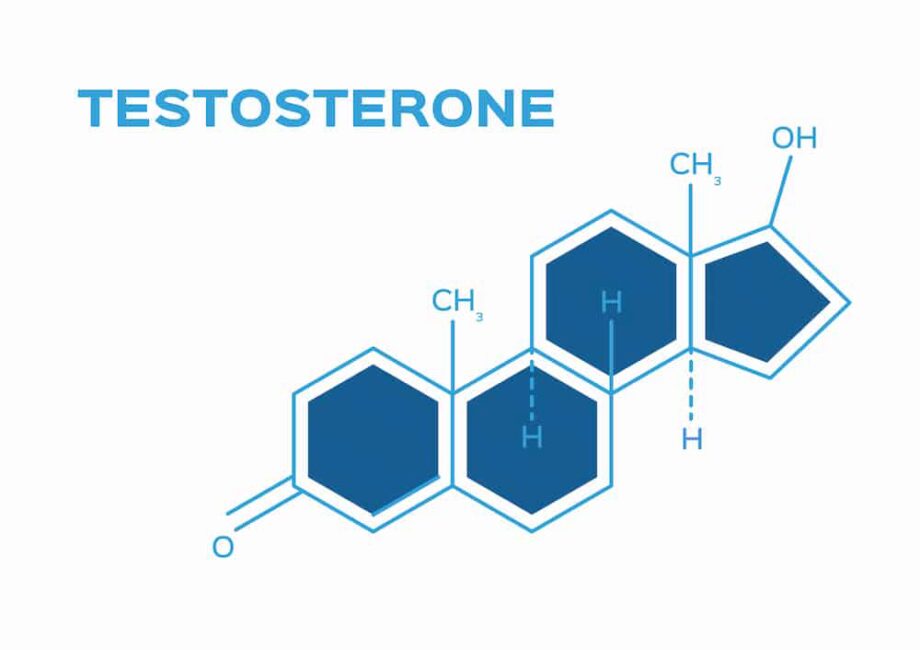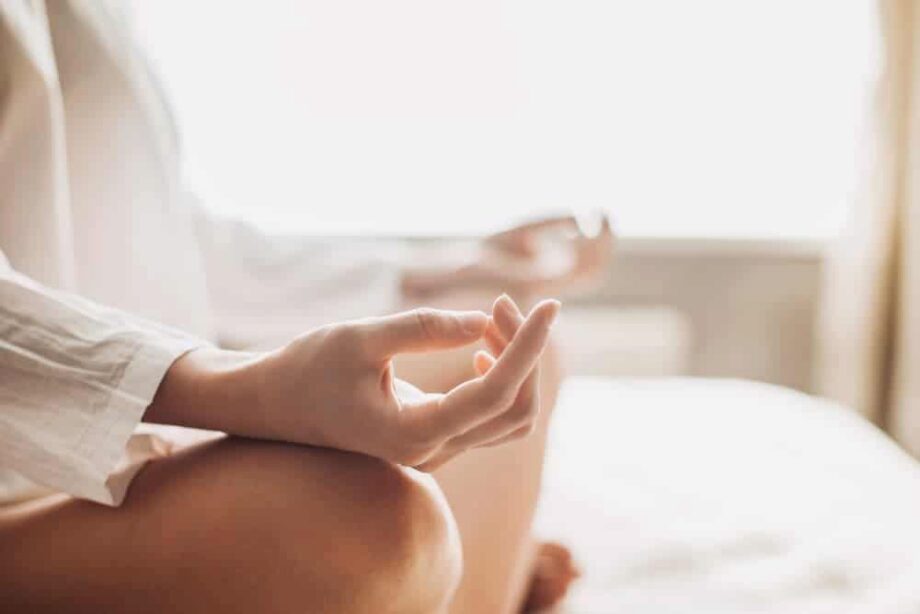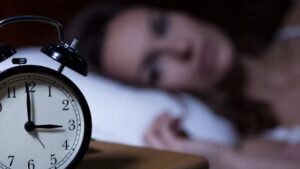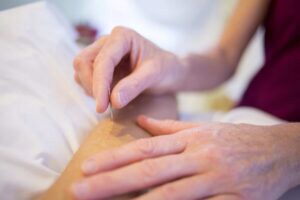Hormone Replacement Therapy and Sleep
Disclosure: By clicking on the product links in this article, Mattress Nerd may receive a commission fee at no cost to you, the reader. Read full disclosure statement.
Mattress Nerd consulted Dr. Leann Poston, MD and Dr. Tara Scott, MD to ensure that this article met our editorial standards.
Starting hormone replacement therapy as part of your physical transition to represent your gender identity can feel exciting and incredibly affirming, but this process may also come with some unwanted effects, including a disruption in your sleep quality.
Right now, there isn’t extensive research on hormone replacement therapy in transgender people, but there are a few small studies that confirm a connection between some forms of hormone replacement therapy and sleep problems.
In this article, we’ll explain how hormone replacement therapy works for transgender individuals, share the research that’s been conducted so far on hormone replacement therapy and sleep, and provide some helpful tips for coping with hormone replacement therapy to get a better night’s rest.

What is Hormone Replacement Therapy?
Hormone replacement therapy is one option for transgender people who want to make changes to their bodies in order to more closely identify with their gender.
There are two types of hormone replacement therapy:
- Feminizing therapy, which involves receiving extra estrogen, and
- Masculinizing therapy, which involves receiving extra testosterone.
Everyone produces both estrogen and testosterone, but hormone replacement therapy provides you with more of whichever hormone you choose.
Everyone’s hormone replacement process is different, depending on your natural hormone levels, overall health and hormone-related goals. If your goal is to make a full physical transition as quickly as possible, you may be able to receive the maximum safe dosage of hormones at first. If you would prefer to take things slowly, you can receive a low dose long-term. However, no matter your hormone dosage, hormone replacement therapy takes time. It is essentially like a second puberty, so it’s important to be patient with your results and trust in the process.
Estrogen Hormone Therapy
Estrogen hormone therapy is used to help people transition from male to female. Estrogen is used because it is a key hormone involved in producing physically feminine features like breasts, minimal facial hair, weight redistribution and more.
When transgender women don’t have access to estrogen hormone therapy, it can often (but not always) cause gender dysphoria, which is a psychological condition where a person feels conflict between their physical sex and their gender identity. Gender dysphoria can range from moderate discomfort and unease in one’s body to extreme fear, disgust or even self-harm.
Even without gender dysphoria, there are still plenty of benefits to estrogen therapy for transgender women. According to the Mayo Clinic, estrogen therapy can help improve sexual satisfaction, which is an important related factor when it comes to gender identity. The Mayo Clinic also says estrogen therapy can help improve quality of life, social functioning and overall psychological well being.
How To Get Estrogen Hormone Therapy
Access to estrogen hormone therapy differs greatly depending on your location, but the general process for getting started with estrogen therapy is relatively similar. Here are the basic steps you may expect when starting estrogen hormone therapy:
- You will initiate the process with a doctor you trust. A wide variety of doctors are qualified to prescribe hormones, so you can reach out to a primary care doctor, endocrinologist, gynecologist or a physician’s assistant.
- Depending on that doctor’s hormone initiation pathway, one of two things will happen:
- If your doctor follows the “referral letter” pathway, you will need to see a mental health professional who will assess your mood, sense of gender identity and possible gender dysphoria.
- If your doctor follows the “informed consent” pathway, they will evaluate your mental health themselves and look to make sure that you are able to give informed consent by fully understanding the risks, benefits and alternatives to hormone replacement therapy.
- You will receive a full physical, including an examination of external sex organs, review of immunizations and lab work.
- In some cases, your doctor may talk to you about the possibility of freezing your sperm for future use.
- You will likely start by taking a hormone that blocks testosterone production for a few weeks, and then later you will start taking estrogen. Estrogen is available in the form of a pill, injection, patch, gel or spray.
- Your doctor may also prescribe you micronized progesterone to improve breast development or finasteride or minoxidil if you’re prone to male-pattern baldness.
- Once you start estrogen therapy, you’ll need to have semi-regular lab work done to monitor your lipids, blood sugar, liver enzymes and more, plus you will need routine care like breast cancer screenings, prostate cancer screening and possibly some vitamin supplementation.
Testosterone Hormone Therapy
Testosterone hormone therapy is very similar to estrogen hormone therapy, but instead of providing feminizing effects, testosterone produces more masculine features, like increased facial hair, increased muscle mass, and more.
Testosterone therapy can treat gender dysphoria, increase sexual satisfaction and improve overall quality of life.
How to Get Testosterone Hormone Therapy
Much like estrogen therapy, access to testosterone therapy differs based on your location, but this is the general process:
- You will initiate the process with a doctor you trust. A wide variety of doctors are qualified to prescribe hormones, so you can reach out to a primary care doctor, endocrinologist, gynecologist or a physician’s assistant.
- Depending on that doctor’s hormone initiation pathway, one of two things will happen:
- If your doctor follows the “referral letter” pathway, you will need to see a mental health professional who will assess your mood, sense of gender identity and possible gender dysphoria.
- If your doctor follows the “informed consent” pathway, they will evaluate your mental health themselves and look to make sure that you are able to give informed consent by fully understanding the risks, benefits and alternatives to hormone replacement therapy.
- You will receive a full physical, including an examination of external sex organs, review of immunizations and lab work.
- You will likely have a conversation about contraception and fertility, and possibly discuss freezing your eggs for future use.
- You will receive testosterone through an injection, gel or patch. Testosterone is not given orally because of the potential damage to your liver.
- If your periods continue, your doctor may prescribe you progesterone as well.
- Once you start testosterone therapy, you’ll need to have semi-regular lab work done to monitor your lipids, blood sugar, liver enzymes and more, plus you will need routine care like breast cancer screenings, cervical cancer screening and evaluation for sleep apnea.
How Does HRT Affect Sleep?
Undergoing hormone replacement therapy (HRT) means making a lot of physical and emotional changes, and those changes can lead to sleep issues you may not have had before. In this section, we will go through all of the physical and potentially emotional changes associated with estrogen and testosterone therapy and explain how these changes could lead to increased sleep problems.
Estrogen Hormone Therapy

Physical Effects
Changes to skin/skin sensitivity:
As your body adjusts to increased estrogen, your skin may start to feel more sensitive. For some people this is a minor annoyance, but for others it is a difficult adjustment. Increased sensitivity may make it more difficult to fall asleep, especially if you find that your sheets feel rougher than usual. Choosing softer fabrics may help alleviate this concern.
Painful/uncomfortable breast tissue on the chest:
Developing new breast tissue can be painful, especially if you’re used to sleeping on your stomach. Pain and sleep usually don’t play well together. Being in pain can make it much harder to fall asleep and stay asleep, and trying to adjust your sleeping position to reduce the pain can keep you awake as well.
More prone to bruises and cuts:
When your body is still adjusting to increased amounts of estrogen, it may bruise and cut more easily. These minor injuries could keep you up more at night because of the discomfort.
Weight gain or loss:
Many people who start estrogen therapy experience a loss of muscle mass and a redistribution of weight throughout the body. Some people may lose weight while others may gain weight, but either way, your weight will probably fluctuate in some way. This could make your mattress a lot less comfortable. We recommend looking at a new pillow top mattress that will provide comfort and support regardless of weight.
High blood pressure:
One of the risks associated with estrogen hormone therapy is high blood pressure. Although this isn’t a desired result, it can happen, and some studies have found a link between high blood pressure and poor sleep. Researchers aren’t sure whether one causes the other, or if another factor is at play, but there is a chance that high blood pressure could make it more difficult for you to sleep.
Emotional Effects
Mood changes:
Everyone reacts to hormone therapy differently. Some people notice that for a while after starting estrogen therapy, they are more emotional, they experience new emotions, or they find themselves relating to others differently than they used to.
As we said before, undergoing hormone replacement therapy is a lot like experiencing a second puberty and it may come with some uncomfortable mood swings. The severity of the swings should settle down after a while, but at first, it may be overwhelming and could disrupt your sleep.
Testosterone Hormone Therapy

Physical Effects
Increased sweating:
A common effect of testosterone therapy is increased sweating, which could interfere with your sleep at first. Thankfully, there are several simple ways to cope with this change. Try using lower thread-count sheets that are more breathable or lowering your thermostat a few degrees before going to bed and that should help.
Painful acne:
Acne is another side effect of increased testosterone. Typically, acne doesn’t disrupt sleep, but if you develop painful cyst-like acne, certain sleeping positions might become uncomfortable.
Acne generally improves after a year of testosterone therapy, but if you need faster solutions, you can talk to your doctor about acne medications that won’t interfere with your hormone therapy. If you’re comfortable, you can also discuss lowering your testosterone dosage to an amount that will still be effective in your transition, but won’t cause so much skin trouble.
Throat pain as voice drops:
Testosterone therapy causes the vocal cords to thicken and the voice to drop, and in the process, your throat might feel scratchy or sore. Pain typically makes sleep more difficult, so this could impact your sleep in the beginning, but this stage passes relatively quickly.
Weight gain or loss:
After a few weeks on testosterone therapy, you may start to notice your muscle mass increasing, especially if you work out. This could lead to weight gain or weight loss, depending on your lifestyle and genetics, and you may find that your mattress is no longer as comfortable as it was at your previous weight. It might be a good idea to get a new mattress that will be comfortable and supportive at any weight.
Obstructive sleep apnea:
So far, we’ve been talking about how physical changes caused by testosterone therapy can have a tangential effect on sleep. But recent research suggests that testosterone therapy in transgender men is directly related to an increased chance of obstructive sleep apnea (OSA).
OSA is a sleep disorder where the sleeper periodically stops breathing throughout the night because of a minor collapse of the airway. This can cause poor sleep quality and if it gets too severe, can be dangerous for your health. If you tend to wake up feeling tired or if your partner notices that you are snoring or that you stop breathing in your sleep, you should talk to your doctor.
Emotional Effects
Mood changes:
When you first start testosterone therapy, you may notice that you have more mood swings than you used to. This is to be expected as your body adjusts to differing amounts of hormones.
After the initial mood swings, you may notice you are less emotional than you used to be, feel your emotions differently or interact with others in a different way. Some studies have found that after several months of testosterone therapy, transgender men notice feeling more anger, but they also report feeling more in control of their anger than before transition.
Sleep Tips and Treatment Options
Poor sleep can lead to poor overall health, and it can definitely add to the stress of your transition process. But if you’re having sleep issues because of HRT, there are plenty of solutions that can help you sleep easier and better.
Here are a few relaxation techniques, sleep hygiene changes and natural sleep aids that might work for you.
Relaxation Techniques
One of the biggest reasons people have trouble sleeping is because they get stressed about the fact that they’re having trouble sleeping. When we don’t fall asleep right away, we start watching the clock, counting down the minutes until our alarm goes off and we have to face the day, exhausted. This stress only makes it harder to fall asleep, but you can combat this stress with relaxation techniques.
If you consistently have trouble falling or staying asleep, you might want to try a relaxation technique that can help you long-term, like acupuncture or yoga. If you’re just looking for something to relax you in case you start to get stressed at night, then breathing exercises and meditation could be very helpful.
- Acupuncture/Acupressure
- Acupuncture and acupressure are both treatments from Traditional Chinese Medicine (TCM). They involve stimulating points on the body, called acupoints, with either needles (acupuncture) or pressure (acupressure). This stimulation helps energy flow through the body, releasing tension and promoting relaxation. Studies show that it really can help reduce insomnia and relieve stress over time.
- Breathing exercises
- If you’re looking for a relaxation technique you can use without an appointment, then breathing exercises may be more useful to you than acupuncture. You can practice breathing exercises anywhere, even in bed at 3am if you’re struggling to fall asleep. Research shows that deep breathing exercises can stimulate the part of the nervous system that calms us down, called the parasympathetic nervous system. This helps reduce our heart rate, slow our breathing and put our bodies in a better state for sleep.
- Meditation
- Meditation is another great relaxation technique you can do any time, any place, and studies show that it can significantly reduce stress. Meditation is all about bringing your awareness to the present moment, grounding yourself and allowing your thoughts and feelings to flow around you without getting swept up in them. This awareness to the present moment helps reduce stress because it keeps us from reliving the past or worrying about the future. Instead, we breathe through the now and trust that is enough.
- Yoga
- Yoga is sort of a combination of meditation, breathing exercise and regular exercise. Something about the combo must work, because literature reviews of the various studies done on yoga have found that yoga can both reduce stress and promote better sleep. It’s more effective to practice yoga regularly rather than only doing yoga when you already feel stressed out, but even occasional yoga sessions can do your mind some good. There are plenty of good yoga apps out there, and there are even some YouTube videos on yoga you can do while still in bed.

Sleep Hygiene and Routine
Another way to improve your sleep is to work on your sleep hygiene. Sleep hygiene is all about setting up your habits and environment to help you get the best sleep you can. Here are a few sleep hygiene tips that have been proven to help you sleep faster, easier or better.
Come up with a soothing bedtime routine.
One of the best ways you can help yourself get a good night’s rest is by putting yourself in the right mindset for sleep. Take time at the end of your day to do something relaxing that will signal to your brain that it’s time to shut down for a while. The National Institutes of Health recommends taking a hot bath, listening to relaxing music and keeping your bedroom cool.
Avoid screens for at least half an hour before bed.
We know it’s tempting to lie in bed for an hour or two, scrolling through your phone or reading something on your e-reader, but it’s just not good for your sleep hygiene. According to Harvard, screens emit blue light, which can delay melatonin production, the hormone that causes us to feel sleepy. The longer we expose ourselves to blue light, the longer we delay melatonin and the harder we make it for ourselves to fall asleep.
Keep your sleep schedule consistent.
Going to bed around the same time each night and waking up around the same time each day, even on the weekends, is a great way to get better sleep. Our bodies run on circadian rhythms, which are basically our internal clocks, and when we change up our sleep schedule every five days, our circadian rhythms get thrown out of whack. Studies show that a consistent sleep schedule trains our brain to fall asleep around the same time each night, significantly reducing the time it takes to fall asleep.
Natural Sleep Aids
If lifestyle changes aren’t helping you get the rest you need, then it may be time to try sleep aids.
Many prescription sleep aids run the risk of dependence, so before you get a prescription, you should talk to your doctor about natural sleep aids. There are a variety of safe, effective options out there, but you should always check with your doctor first to make sure they’re safe for you.
Below, we’ve outlined some of the most popular natural sleep aid options.
- Melatonin
- Melatonin is a hormone that our body naturally produces that makes us feel sleepy. Typically, melatonin production starts when it gets dark, but thanks to our modern, well-lit lifestyle, this means we don’t even start producing our sleepy hormone until we’re already in bed. Since melatonin takes a while to take effect, this can lead to tossing and turning. Instead, try taking a melatonin supplement an hour or so before bed. The National Center for Complementary and Integrative Health says that melatonin can help people fall asleep faster and sleep more soundly in some situations. If your doctor thinks it could work for you, melatonin can be a great natural sleep aid.
- Camomille
- Camomile is a daisy-like plant that has been used to brew bedtime tea for centuries. Today, you can drink it as tea or take it as an oral supplement for better sleep. Research suggests that camomile works by breaking down gamma-aminobutyric acid (GABA), which is a neurotransmitter that promotes feelings of calmness. However, if you are undergoing testosterone therapy, camomile may not be right for you. According to Penn State Medical Center, camomile can act like estrogen, which could cause issues with your transition. Talk to your doctor before using camomile for sleep.

- Lavender
- Lavender is a well-researched sleep aid that works in many different forms. Studies show that lavender essential oils used in aromatherapy can significantly improve sleep quality, and if you don’t love the smell of lavender, other studies show that oral lavender capsules can improve sleep quality and sleep duration as well. Generally, lavender is very safe, but if you’re receiving testosterone therapy, it may not be the best choice because, like camomile, lavender can act like estrogen and cause feminizing effects.
- Magnesium
- Magnesium is an essential nutrient that our body needs in order to properly function. It’s involved in hundreds of different bodily functions, including blood pressure, heart health, bone strength and sleep. Some studies have found that taking a magnesium supplement can help increase total sleep time, improve sleep quality and reduce the time it takes to fall asleep.
Final Thoughts
More research needs to be done on how HRT affects sleep for transgender people, but for now it’s safe to say that the physical and emotional changes caused by HRT could cause some frustrating sleep problems.
It’s important to remember that HRT is different for everyone, and even if you run into unexpected troubles, there are solutions that can help. A good doctor can make all the difference in navigating these issues as they come up, but we know not everyone is that lucky.
If you’re struggling with your transition, please reach out to the Trans Lifeline online or call at 877-565-8860.

Meet Our Medical Reviewers
Dr. Tara Scott, founder of Revitalize, is a nationally recognized authority on hormone and wellness related issues. Dr. Tara Scott first became involved with hormone and integrative medicine while practicing as an OB/GYN. Her empathy for patients experiencing hormone related issues led her to become trained and certified by the American Academy of Anti-Aging Medicine. The evidence-based practices she employed helped many patients conquer chronic wellness issues, and word quickly spread. It soon became clear that a practice devoted strictly to evidence-based regenerative medicine, highly focused on hormone-related issues, was needed in the medical community. Revitalize was born. Dr. Scott is passionate about educating the medical community on the advances in evidence-based hormone therapy.

Dr. Leann Poston is a licensed physician in the state of Ohio who holds an M.B.A. and an M. Ed. She is a full-time medical communications writer and educator who writes and researches for Invigor Medical. After practicing in a physician group practice for eleven years, Leann has taught students at all academic levels, written curriculum, and served as an assistant dean at the Wright State University Boonshoft School of Medicine. Leann’s vast writing and teaching experience have led to several awards in the teaching profession. Leann has written several book reviews and blog posts for the Academy for Professionalism in Health Care on topics such as professional behavior, the virtuous physician, how healthcare became big business, irrational choices and why we make them, patient rights, genetic testing, and ethics in health care


